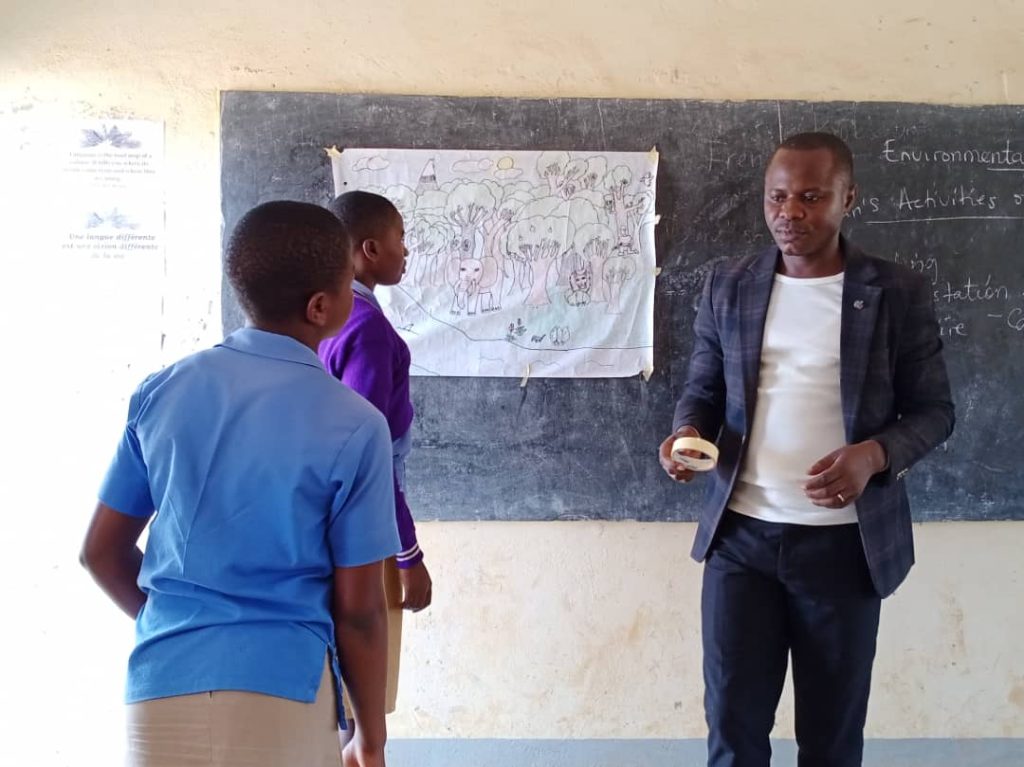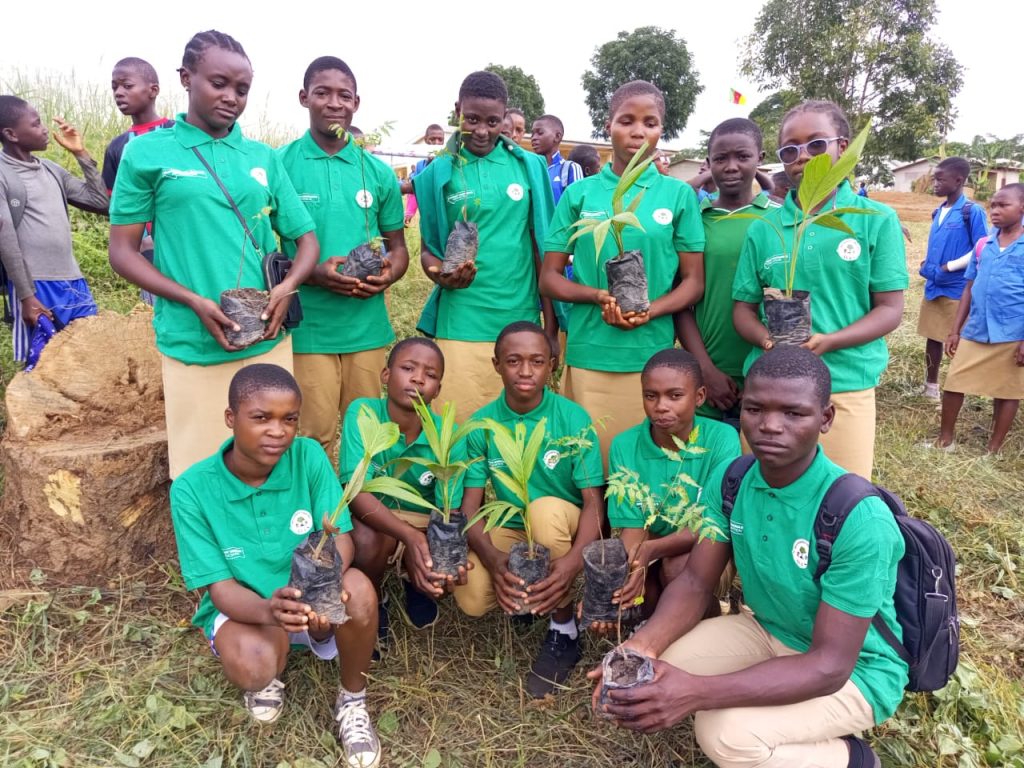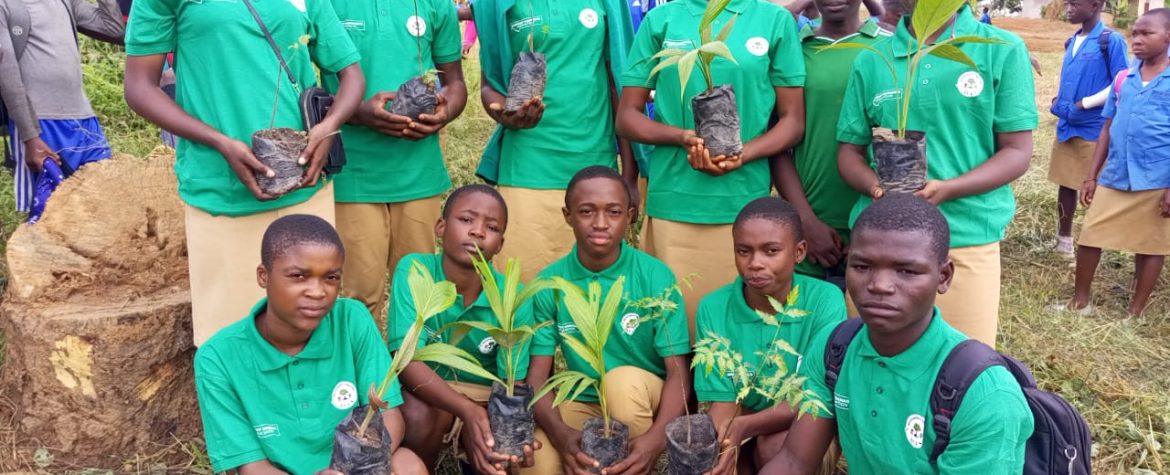The Impact of ACES Environmental Clubs
- Home
- The Impact of ACES Environmental Clubs
- aces
- April 28, 2024
- 0 Comments
The Impact of ACES Environmental Clubs: Empowering Secondary School Students for Conservation and Environmental Stewardship
Abstract:
This article presents the outcomes and impact of the environmental clubs established by the Action for Conservation and Environmental Sustainability (ACES) in five secondary schools around the Deng Deng National Park. The initiative, supported by the Elephant Managers Association (EMA) and Alongside Wildlife Foundation, aimed to engage students in conservation education and environmental stewardship. Throughout the project, students actively participated in various activities, including conservation arts, tree planting, waste management, gardening, and public talks on conservation and gender-based violence. This article highlights the positive effects of the program on students’ environmental awareness, leadership skills, and community engagement.
Keywords: conservation education, environmental clubs, secondary schools, youth engagement, environmental stewardship, Deng Deng National Park.
Introduction:
In recent years, environmental conservation has become an increasingly critical issue globally, with a growing emphasis on engaging and empowering future generations to become stewards of the environment. Recognizing the importance of instilling conservation values early in life, Action for Conservation and Environmental Sustainability (ACES) initiated a program to establish environmental clubs in secondary schools near the Deng Deng National Park. The project aimed to educate and empower students to actively participate in conservation efforts and become advocates for environmental sustainability.
Program Activities and Student Engagement:
The environmental clubs created by ACES provided students with a platform to engage in a range of educational and practical activities focused on conservation and environmental stewardship. Students enthusiastically participated in conservation arts, which allowed them to express their environmental concerns and aspirations creatively.
Additionally, tree planting activities not only contributed to reforestation efforts but also fostered a sense of responsibility towards preserving natural habitats. Waste management initiatives equipped students with practical skills to address environmental challenges within their schools and communities, while gardening activities promoted sustainable and eco-friendly agricultural practices.Moreover, the environmental clubs facilitated public talks on various topics, including conservation, gender-based violence, and other pertinent issues, encouraging students to become informed and active citizens. These discussions provided a platform for students to voice their concerns and ideas, fostering a sense of agency and empowerment. Through these diverse activities, students gained valuable insights into the interconnectedness of environmental conservation and social issues, laying the foundation for holistic and sustainable approaches to community development.
Impact and Outcomes:
The establishment of environmental clubs in the secondary schools surrounding the Deng Deng National Park has yielded significant positive outcomes. Students have demonstrated heightened awareness and understanding of environmental issues, displaying enthusiasm and commitment to actively participate in conservation efforts. The program has not only equipped students with practical skills in environmental conservation but has also nurtured their leadership abilities and sense of responsibility towards their communities and the natural world.
Furthermore, the project has facilitated the development of a network of environmentally conscious and empowered youth, creating a ripple effect that extends beyond the school environment and into the broader community. Students have emerged as ambassadors for conservation and environmental stewardship, inspiring their peers and community members to embrace sustainable practices and contribute to the protection of natural resources.
The positive impact of the initiative extends to the broader community, laying the groundwork for a sustainable future were young leaders champion environmental conservation and social responsibility. The success of the program underscores the significance of investing in youth engagement and education to address pressing environmental challenges.
Moving forward, it is imperative to sustain and expand the impact of the environmental club’s initiative. Continued financial support, as well as collaboration with local communities, will be essential to ensure the long-term success and sustainability of the program. Strengthening partnerships with stakeholders in conservation and education will further amplify the reach and influence of the environmental clubs, fostering a culture of environmental stewardship and community engagement.
As the impact of the ACES environmental clubs becomes more evident, it is hoped that similar initiatives will be replicated in other regions, amplifying the collective efforts to nurture a generation of environmentally literate and empowered youth. By investing in the education and engagement of young people, we can pave the way for a more sustainable and harmonious coexistence between humanity and the natural world.
In conclusion, ACES environmental club’s initiative has made a profound impact on the students and communities surrounding the Deng Deng National Park. Through their active participation in conservation activities, students have developed a deep appreciation for the environment and have emerged as passionate advocates for sustainable practices. With continued support and collaboration, the legacy of the environmental clubs will endure, contributing to a brighter and more environmentally conscious future for all.






Leave A Comment